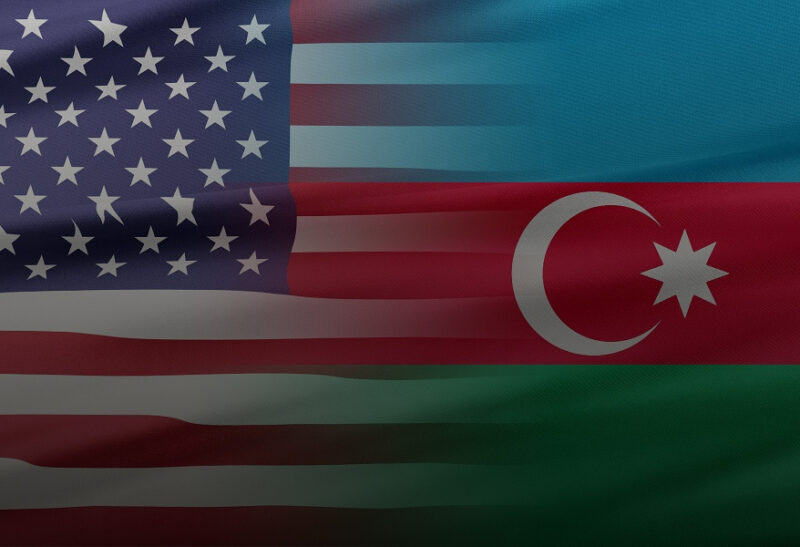Azerbaijan’s President Ilham Aliyev has set the stage for an extraordinary event in the country’s political landscape.
With his recent order signed on December 7, 2023, Azerbaijan starts to prepare the country for an extraordinary presidential election slated for February 7, 2024.
This decision, articulated in the order, directs the Central Election Commission to oversee the arrangements ensuring that the extraordinary presidential elections align with the stipulations outlined in the Election Code.
The preceding presidential elections in Azerbaijan, held on April 11, 2018, deviated from the customary electoral schedule, marking an extraordinary occurrence. Ilham Aliyev’s tenure as president spans two decades, solidifying his prolonged leadership in the country. Aliyev’s longstanding tenure as president emphasizes the significance of this upcoming political event. We speak with opposition party members and political specialists in the country on their minds about this unexpected call.
“There is a possibility of interference from abroad”
Ahmet Alili, a prominent political urbanist and conflict expert, shared insights on the anticipated February 7 elections in a conversation with Meydan TV. He highlighted a notable aspect regarding the timing of these elections, citing past predictions by political analysts. Alili recalled the expectation that Russian troop presence in Karabakh, initiated in 2020, was projected to conclude by 2025, coinciding with the scheduling of presidential and parliamentary elections. Hence, the current timing of the February 7 elections aligns with these anticipated political shifts.
Alili also addressed the potential influence of external forces, particularly focusing on the dynamics between Azerbaijan, Russia, and the United States. He emphasized the periodic tensions experienced by President Ilham Aliyev in his relations with both nations. Notably, recent developments, including Iran’s troop movements near Azerbaijan’s borders until a day prior, were highlighted as factors potentially inviting foreign intervention. Alili expressed concerns over such interventions, suggesting they could lead to complications for the Azerbaijani government and possibly prompt concessions.
Highlighting the intricate relationship between Azerbaijan and Russia, Alili pointed to the broader range of opportunities for the Azerbaijani political elite to closely monitor developments in Russia. Moreover, he referenced a recent high-level delegation from the United States and suggested that the resultant positive outcomes of their meeting had potentially influenced the swift decision by Azerbaijani authorities to call for early elections. Alili’s remarks underscore the multifaceted considerations and geopolitical factors influencing the timing and context of Azerbaijan’s early elections.
“ It was not so unexpected”
Isa Gambar, the head of the National Center for Strategic Thinking, also shared his perspective on the recent announcement of early elections. Gambar conveyed that, upon scrutinizing recent events, the decision for early elections didn’t come as a complete surprise to him.
In elaborating on the interconnectedness of events, Gambar addressed inquiries linking Azerbaijan’s elections to the forthcoming ones in Russia. He remarked that connections could be drawn between various happenings, hinting at the intricate interplay of geopolitical events.
“ The authorities could not turn the legitimacy of the Karabakh victory into public support as they wanted”
Azer Gasimli, the Chairman of the Institute of Political Management, offered a distinct perspective on the recently announced early elections in Azerbaijan during an interview with Meydan TV. Contrary to linking the February 7 elections in Azerbaijan with Russia’s elections, Gasimli expressed skepticism about any direct correlation.
Highlighting the unexpected nature of the early election announcement, Gasimli conveyed his surprise, attributing it to the unprecedented timing – a significant 15 months ahead of schedule. He questioned the rationale behind this decision, particularly given recent events in Karabakh. Gasimli’s analysis suggested a lack of confidence in the leadership or the established processes, signaling potential doubts about the government’s internal trust or stability.
He further delved into the socio-economic landscape, citing concerns over Azerbaijan’s economic indicators, projecting a trend of widening social disparities. Gasimli remarked on the government’s challenges in translating the events in Karabakh into widespread public support.
Gasimli’s observations extended to foreign policy implications, emphasizing the exhaustiveness of available strategies and referring to the Karabakh issue as the government’s last significant leverage. He forecasted potential ramifications, such as the continued presence of the Russian peacekeeping contingent, which could impact the government’s legitimacy. Gasimli highlighted the strain in relations with the West and anticipated heightened tensions due to ongoing repressions.
Speculating on the suddenness of the decision, Gasimli raised questions about a recent meeting between the US assistant secretary of state and Aliyev, hinting at possible discussions influencing the call for early elections.
Regarding participation, Gasimli acknowledged the challenge of the genuine opposition to muster resources within the tight two-month window, emphasizing the importance for those considering an alternative to Aliyev to engage in the electoral process.
” Aliyev’s ally Putin will suffer a military defeat soon”
Ali Karimli, the chairman of the People’s Party of Azerbaijan, believes that Ilham Aliyev’s appointment of an extraordinary presidential election on February 7 without any public discussion is a preparation for the falsification of the elections by the regime.
“Now it becomes clear why illegal arrests occupied the country’s agenda in recent months. Why has the country’s relationship with organizations such as the USA, EU, and OSCE been artificially strained in recent months? With these steps, Ilham Aliyev was preparing the ground for easier falsification of the planned early elections. He has set up a sudden election spectacle in an environment of mass arrest and repression, in isolation from the democratic world, in a situation where there are not even minimal opportunities for elections, and he intends to extend his power for a while by false means,” Ali Karimli wrote on his Facebook page.
According to Karimli, the preparation of the presidential elections under concealed circumstances, excluding social and political forces, indicates the regime’s fear of minimal political competition, even within a repressive environment. He suggested that another factor prompting the early elections was the potential decline of Putin’s ally, an association that the regime has recently leaned on. This move by Ilham Aliyev, as per Karimli, aims to extend his term through an election lacking in competition, while the Putin regime remains intact.
Karimli highlighted that the repeated occurrence of presidential elections contributes to the populace becoming accustomed to early electoral processes. He expressed the belief that elections, both presidential and parliamentary, will be arranged based on the people’s readiness and demand.
“We are thinking of participating in the elections”
Natig Jafarli, a member of the Political Committee of the REAL Party, told Meydan TV that the party is in favor of participation in the elections in any case.
Jafarli conveyed the party’s stance, indicating their opposition to election boycotts. He emphasized the importance of engaging in the election in some capacity, though the specifics of this participation would undergo discussion within the party’s political committee. Jafarli mentioned that the decision resulting from these deliberations would subsequently be made public.



